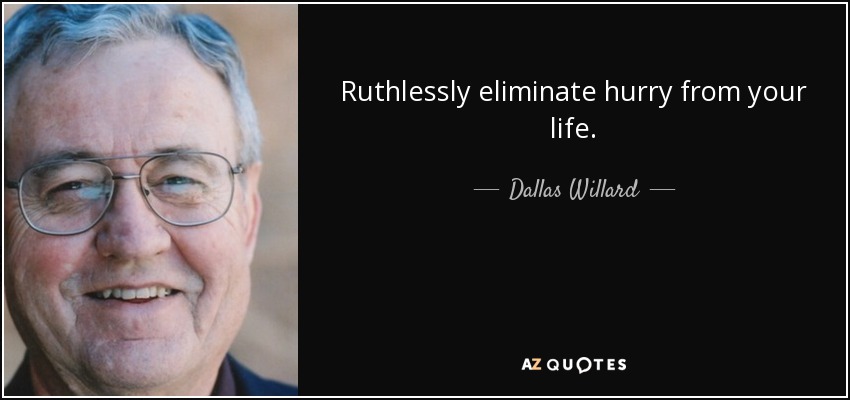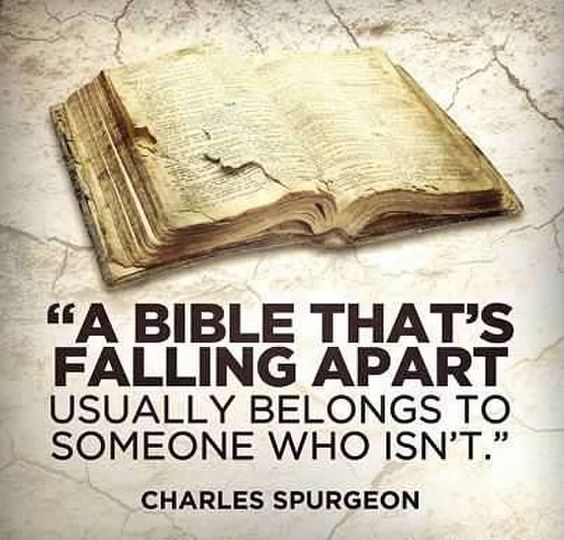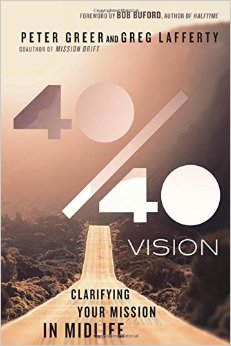
Forty(ish)
What’s So Special About Forty?
“I believe the forties to be dangerous, uncharted waters.” – Gordon MacDonald
God seems to deem forty the appropriate period for testing, judging or proving something. For reasons only He knows, God sometimes allows us to enter into a rigorous “forty test” when we least expect it. Deuteronomy 8:2 reminds us that Israel’s forty years in the wilderness were designed to humble and test them, in order to reveal what was in their hearts.
Midlife is a time unlike any other. It’s a moment when we are able to look back at the first forty years of our life and gain a new perspective for the next forty, what we’re calling 40/40 vision. Recently midlife surpassed the teenage years for the highest rate of suicide.
A New York Times article noted, “From many points of view, midlife permits us to be on top of the world, in control of our lives and well pleased enough with what we have accomplished to seek new outlets of both self-expression and giving back to society some of what we have earned—and learned.”
At age forty, German psychologist Erik Erikson developed a theory that in midlife we face the question, “What am I here for?” The answer is basically a binary choice: me or others. Those who choose others selflessly invest in people and develop the virtue of “care.” Otherwise, they suffer stagnation, become self-absorbed and find that their lives lack meaning.
Meaning(less)
How Do We Find Meaning When Life Seems Pointless?
Solomon wrote Ecclesiastes as a late-in-life memoir. He had finished his public works, amassed tremendous wealth and assembled a bevy of beautiful women. He had seen and done it all. Popular wisdom has it that if Solomon wrote Song of Songs, it was probably in the spring of life, when he was flush with first love. He likely wrote Proverbs in the middle of his life, at the height of his intellectual and political power. And finally he wrote Ecclesiastes late in life, when the only thing left to tally was the true bottom line.
You have to face the meaninglessness of your self-made life before you can find meaning from another source. If the richest, wisest man in the world says it’s all meaningless, it’s worth considering his argument before we spend our lives in similar pursuits. And that’s why God put Ecclesiastes in our Bibles. It guides us to the heart of nothingness, that we might seek life elsewhere. From that standpoint, Ecclesiastes is paradoxically devoid of gospel, yet full of grace.
According to a 2013 Harris Poll, 74 percent of adults in the United States believe in God. But it’s difficult to discern what difference that makes. Most theists have the same rates of depression and maladjustment as the rest of the population.
As C. S. Lewis put it, “If I find in myself desires which nothing in this world can satisfy, the only logical explanation is that I was made for another world.”
(Dis)appointment
How Do We Make a Go When Life Doesn’t Go As Planned?
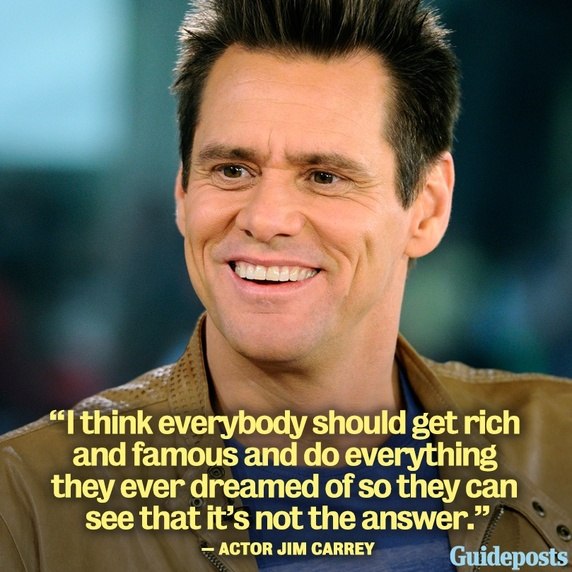
Todd Hendricks, a business leader, said, “Woe is me opens up a lot of bad doors.” Keeping close company with discouragement is dangerous.
John Greenleaf Whittier wrote, “Of all the sad words of tongue or pen, the saddest are these, ‘It might have been.’” Most worthy opportunities are free, but the opportunity cost of missing them is steep.
Just Say No to Nostalgia: Ecclesiastes 7:10 warns us not to yearn for the “old days.” The word nostalgia tells an interesting story. It’s a Greek word combining “return home” and “ache.” It was coined by a seventeenth-century medical student to describe an unhealthy melancholy.
Ecclesiastes 4:6 says, “Better one handful with tranquility than two handfuls with toil and chasing after the wind.” The solution to midlife disappointment and restlessness is contentment. It’s better to be content with what you have than to pursue what’s meaningless. Ann Voskamp, the author of One Thousand Gifts, challenges people to list three things each day for which they’re grateful.
Author Mark Buchanan noted, “One of the persistent cultural myths is the myth of fulfillment, the promise that on this earth, the fullness of all I truly need and all I really desire awaits. And it’s not a Hollywood myth. It’s a Christian one too. Maybe it’s especially Christian.” So many people think that God owes them a good life. They won’t articulate it that way, but their expectation is that a modicum of obedience will yield a windfall of blessings.
If we could see more clearly, we’d discover that obedience does yield blessing, but not always in the form or time we prefer. What if one of the developmental tasks of midlife is to work through our discontentment?
Sonja Lyubomirsky, a professor of psychology, writes, “The more a person is inclined to gratitude, the less likely he or she is to be depressed, anxious, lonely, envious, or neurotic.”
(In)satiable
What Happens When the Thrill Is Gone?
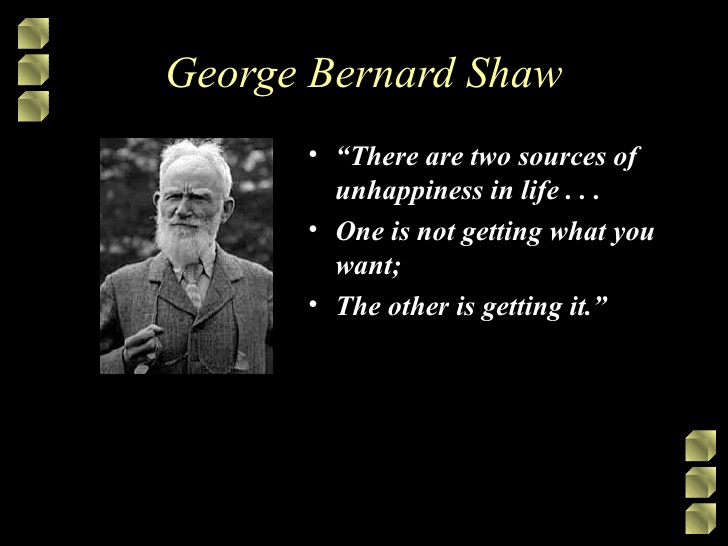
As Ravi Zacharias said, “The loneliest moment in life is when you have just experienced what you thought would deliver the ultimate—and it has let you down.”
Pleasure is a trap. You give yourself to pleasure, then you’re “given over” to it. Thinking you’re the master, you freely indulge. But next thing you know, you’re a slave. As 2 Peter 2:19 reminds us, “People are slaves to whatever has mastered them.” Whether our appetite is for food, sex, money or some other thrill, we actually become hungrier when we indulge. We stretch our stomachs, creating even more space to fill.
Living under the sun, we can expect to be reasonably happy now. But connected to the God above the sun, we can expect to be supremely happy later. Surrender to God, enjoy his gifts and seek a higher goal beyond your personal happiness.
Or as C. S. Lewis put it, “Aim at Heaven and you will get Earth ‘thrown in’: aim at Earth and you will get neither.”
Daniel Gilbert, one of the top researchers in his field, studied the happiness of two groups of people: lottery winners and paraplegics. Surprisingly there was no difference between the happiness of the two groups. Yes, initially there is a rush of raw pleasure after winning a lottery and a deluge of despair after suffering an injury causing paraplegia. But after a few months, the vast majority of people in both groups were no happier or sadder than they were before. Well, except for the lottery winners; a significant portion of them ended up less happy.
George Mueller was a native German, who lived almost the entire nineteenth century, and pastored a church in Bristol, England for 66 years. He said he would “get my soul into a happy state” by “reading my Bible.” During his lifetime, he read his Bible cover to cover nearly 200 times. He writes, “The most important thing I had to do was to give myself to the reading of the word of God and to meditation on it.” But it’s not just that you read, it’s how you read. Don’t just read for a little axiom to guide your day. Don’t just read for a bromide to soothe your pain. Instead, read to see above the sun, to gain a grand vision of God.
John Piper says this: “No one goes to the Grand Canyon to increase their self-esteem.” He means the Grand Canyon is massive and spectacular, and you don’t go there for anything but to be blown away by the vista. The same is true when surveying God in the pages of Scripture. You open a Bible to gaze at him. And when you truly see his attributes and actions, it’s a pleasure beyond compare: “We are wired to be satisfied by admiring the most admirable, and the most admirable is God,” Piper says.
(Im)mortal
How Can You Find Clarity in a Casket?
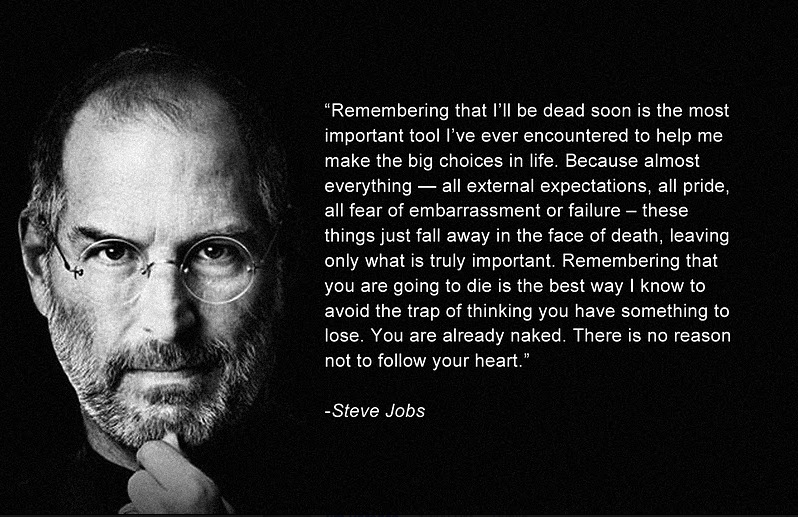
Pastor Colin Smith writes, “Every person should attend a funeral at least once a year. Going to a wedding reminds you that the marriage bond is sacred. Going to a funeral reminds you that life is a vapor and one day yours will be gone.” Almost everyone walks away from a funeral a bit more thankful for the life and loved ones they have.
Dr. Mario Garrett, a professor of gerontology, notes a deficit in end-of-life counseling, even among people of faith: “With the medicalization of death, there is a passive acceptance by faith leaders that death is a medical event rather than a spiritual journey.” And since death is a spiritual journey, people need guidance.
How would things be different if we lived every day in light of our deaths? Greer explained that in an attempt to explore this, he wrote his eulogy. He noted a stark contrast between his eulogy virtues and his résumé virtues. It’s far too easy to spend our best energies building résumés and our last days regretting it. In the end, none of those accomplishments matter so much. And beyond our eulogy, when we stand before God, will the successes of even the biggest world-changer look anything but petty?
(Un)charitable
How Do We Build True Wealth?
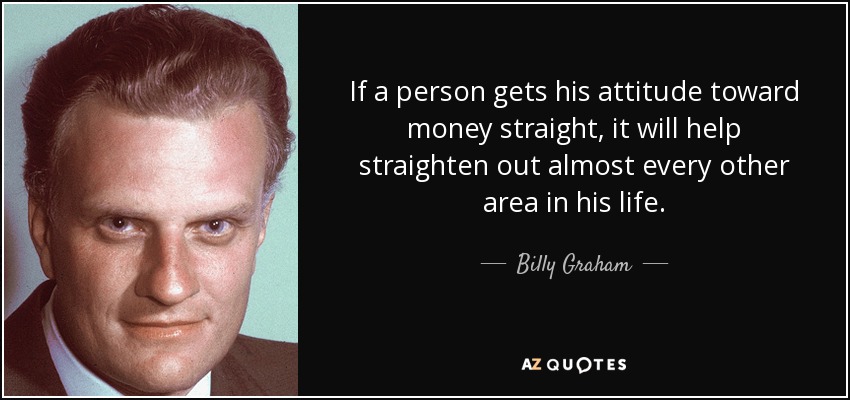
Kansas State University researcher Sonya Britt found that arguing about money is the top predictor of divorce. No other factor even comes close. But we avoid the topic and blindly hope that financial problems will fix themselves. Meanwhile, the stack of bills keeps growing, leaving the average American hemorrhaging cash.
Ironically we are living in the wealthiest period in human history, yet most of us feel less than rich. And for the select few who have achieved financial independence, the money doesn’t deliver the bliss they expected.
Research indicates that as you near the top, life stress increases so dramatically that its toxic effects essentially cancel out many positive aspects of succeeding. As Ecclesiastes 5:12 puts it, “The sleep of a laborer is sweet, whether they eat little or much, but as for the rich, their abundance permits them no sleep.” Stress and money are like conjoined twins. We can’t separate them, so we have to take them together.
The Bible speaks of money in over 2,400 verses. It’s a subject mentioned three times more than love and eight times more than prayer.
Our formula for living looks something like this: Stuff + More Stuff + Even More Stuff = Extraordinary Happiness. If that were true, Americans would be the happiest people on earth. But we aren’t. We’re not even in the top ten, according to the World Happiness Report 2013. We are, however, the world leader in antidepressants, making up two-thirds of the global market. In exploring the ancient issue of greed, Dennis Okholm writes, “We have strong desires for products before we have them, but once acquired, they mean very little to us.” He cites research showing how people focused on material wealth “are less content than others with their lot in life and tend to be more anxious, depressed, distressed, not as well adjusted, and experiencing lower levels of well-being.”
There is actually a negative correlation between income and generosity in this country—that is, the more you make, the less you give. The poorest fifth of Americans give away 4.3 percent of their earnings, while the richest give away 2.1 percent. The most generous group in the United States is “the working poor,” many of whom are recent immigrants.
Midlife invites us to consider what’s in our wallet and what’s in our heart, to consider what we will do with our wealth while it’s still in our hands. Think of your bank account as the written account of your life’s passion. More than anything else, money is a thermometer, taking the temperature of our hearts. In our forties, we do well to reset the thermostat until the thermometer reads what it should.
Robert Putnam’s well-known research, reported in his Bowling Alone, identified an alarming downturn in charitable giving: Trends in American philanthropy relative to our resources are dismaying, for in the 1990s, Americans donated a smaller share of our personal income than at any time since the 1940s. . . . In 1960, we gave away about $1 for every $2 we spent on recreation; in 1997, we gave away less than 50¢ for every $2 we spent on recreation.
(Un)rest
How Do You Stop and Rest Before Life Stops You?
Busyness is a hallmark of modern life. It’s paraded in our culture as if a busy life is equivalent to a productive one. If you listen carefully, you’ll hear the boast beneath people’s busyness. A calendar full of commitments is like a Girl Scout’s sash full of merit badges. It makes us feel important. If I weren’t so necessary, I wouldn’t be stretched so thin.
Midlife is a time to reconsider how we want to live for the rest of our lives.
Lack of sleep is strongly linked to depression, forgetfulness, lack of sex drive and increased likelihood of heart disease, heart attack, stroke and diabetes. Studies also tell us that people who sleep less than six hours a day are almost “30 percent more likely to become obese than those who slept seven to nine hours.”
Not everyone lives in perpetual motion. In many cultures, tasks are not as important as relationships. So, they sit for tea and conversation. They greet everyone when entering a room. They pack less into their days, because they know we need margin for unexpected conversations. In Swahili, the word for white man, muzungu, means “the one who spins around.”
John Ortberg, pastor of Menlo Park Presbyterian Church, once asked Christian philosopher Dallas Willard about the key to spiritual health. He describes Willard’s response: [There was a] long pause. “You must ruthlessly eliminate hurry from your life,” he said at last. Willard knows of what he speaks. A restless life wounds others and ruins us. A restful life refreshes both others and us.
Psalm 46:10 says, “Be still, and know that I am God.” We have a God who speaks; the question is whether anyone is listening.
Warren Buffet famously wrote, “The difference between successful people and really successful people is that really successful people say no to almost everything.”
Age(less)
How Do We Grow Up Gracefully?
Most countries have life expectancies far shorter than the United States average of seventy-nine. Several African countries have a life expectancy of less than fifty. But while few countries have life spans as long and healthy as ours, many view old age in a healthier way. In South Korea, they throw big parties for sixtieth and seventieth birthdays. The sixtieth birthday is known as the hwan-gap, and it’s largely a celebration of the fact that modern medicine has enabled individuals to outlive their ancestors. To top it, the seventieth birthday is known as the kohCui, meaning “old and rare.”
We should do both the elderly and ourselves a favor: respect old age now, and maybe it will become even more respectable by the time we get there. As Proverbs 16:31 reminds us, “Gray hair is a crown of splendor.”
There is always new research pointing out the benefits of ancient, forgotten practices. Like standing. Humans used to stand a lot. We did manual labor and spent hours a day on our feet. Now we sit in couches, cars and offices. Some studies are now showing that standing more can be a bigger boon to health and longevity than exercise programs.
Exercise is an act of stewardship with two primary aims: to care for our bodies so we can give them more readily to the loving service of God and neighbor, and to enjoy our bodies as the divine gifts they are.
It’s easy to obsess over mind and body while leaving the soul untouched. That’s a big mistake, because while we live in our bodies, we live out of our souls. The soul is the core, the command center.
Greer finishes 40/40 Vision with this old saying:

